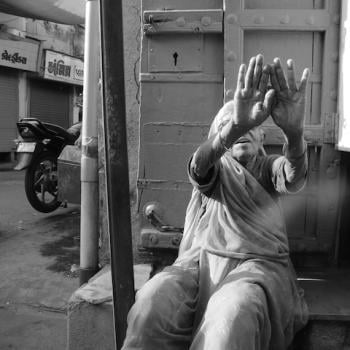
Excerpt from the book Copyright © 2025 by Karl Forehand
Find a Trauma-informed Therapist
“If you want to go fast, go alone.
If you want to go far, go with others.”
– African Proverb
As a pastor, seeking help from a licensed counselor felt unusual. While we occasionally talked about it and refrained from criticizing those who did, we also neglected to advocate for it as the best approach. There was a persistent belief that God would meet all our needs, and with enough faith, we would indeed become “new creations.”
Pastors often ask, “Who can I confide in?” However, upon reflection, I realize this sentiment reveals one of several barriers we have created to avoid the challenging journey of self-improvement. We kept ourselves busy and nurtured a sense of co-dependence within our communities, where it felt like we were progressing. Although we had the potential for deeper connections with others, that path proved more difficult.
Right now, I am thriving significantly because I have connected with several approaches that have helped me confront my trauma and understand my journey. I have practiced shadow work with some Benedictine sisters, participated in intensive weekends to address shame, and explored various forms of inner work and somatic therapies. Additionally, I have integrated insights from fellow travelers I’ve met along the way.
I admit that I was somewhat harsh on mental health professionals in the past. One reason was that my faith community didn’t hold them in high esteem. At times, I would see the pastor utilizing counseling techniques and discussing his struggles openly, but for the most part, that entire industry looked down on the issues I was facing. I suppose they regarded seeking the help of a therapist as a lack of trust in God, and some even felt that way about medical doctors. A few of them viewed my mental health as a sin issue.
As I will likely mention elsewhere in this manuscript, I also faced limited amounts of money and time to dedicate to my mental health. I could always find a reason to spend money on my hobbies, but I just wasn’t conditioned to view my mental health as a priority. Growing up in communities surrounded by many individuals with various mental health issues, I didn’t feel all that different from them, and I certainly wasn’t equipped to understand my own challenges.
Even after starting my deconstruction, I was somewhat hesitant to see a therapist because I noticed that the counselors I knew were not doing very well. They could identify the problems but struggled to recover for various reasons. I believe this stemmed from my assumption that talk therapy often operates like a cycle that keeps retraumatizing the patient as they recount the same story repeatedly. They became skilled at telling the story, but many did not experience significant recovery. The National Institute of Health agrees, saying, “Unfortunately, treatment settings and clinicians can unintentionally create retraumatizing experiences.”[1]
Biblical counselors might be among the least effective providers because their training is often inadequate or nonexistent. The advice during my Spiritual Leadership Coaching training was consistently the same: read your Bible more, pray often, and attend church regularly. It frequently felt like a mantra, encouraging individuals to try harder or implying they needed to stop sinning and repent.
Later in my journey, I discovered a process called focusing. Almost by chance, I had sessions with trauma-informed individuals who helped me break through my barriers and integrate my trauma. I noticed that it felt as if I had been reborn. Naturally, there were deeper issues to address, and eventually, I sought out a therapist who specialized in trauma. So, what does that mean exactly?
Trauma-informed Therapists
Trauma-informed therapists recognize how trauma affects individuals, including their relationships and sense of safety. They create secure environments that assist clients in reconnecting with their bodies, where trauma is held in the nervous system. My therapist often says, “Okay, let’s check in with the body.” Some may invite you to share what you feel and where you feel it. In my experience, there were times when I wasn’t even aware of the events that contributed to the trauma being stored.
When we live with and process trauma, similar situations can trigger us and lead us back to earlier coping strategies because we perceive ourselves to be in danger. The higher functions of our brain shut down as we enter fight or flight mode, while areas like the limbic system respond to the situation as if we are facing an external threat. Much like animals do, when the danger has passed or is believed to have passed, we may begin to self-regulate, but we must first attend to the wounded part; action can follow later. By being present with it, we can gain a better understanding.
Early in my deconstruction, I had a significant experience when various situations triggered me over the weekend. As the trauma stored in my body began to surface all at once, I felt as if everyone was persecuting me, and I couldn’t figure out what to do. I had the privilege of visiting some Benedictine sisters, who helped me focus on what my body was trying to communicate. When the major event occurred, I concentrated on the part of myself that was feeling the pain and reassured the younger part of me that I would support him.
After that, I cried for a long time and fell asleep when exhausted. When I woke up, I felt reborn, and I set out on a journey to learn more about techniques like these that helped me grow further. Eventually, I sat down and wrote about the experience in my book, Being: A Journey Toward Presence and Authenticity. Sometimes, people refer to these as Somatic Therapies.
A trauma-informed therapist or spiritual director asks questions with empathy. They often refer to themselves as empathetic witnesses because their role is not to judge, and they rarely give advice. Instead, they are primarily curious about what the patient is sharing, and they frequently repeat or clarify what you say. While focusing is something you can do on your own, at some point, you may want to seek professional help. Recently, I made significant progress with my therapist. Your recovery and healing will be challenging, but it is worth it. The toughest part is getting started.
Trauma-Informed Therapist – Action Steps
What do trauma-informed and trauma-responsive mean?
Why could it be unhelpful to use “Biblical Counselors?”
Schedule a date to find a trauma-informed therapist.
Spend 5 minutes writing freely about your thoughts on this chapter and the questions that arose for you.
[1] https://www.ncbi.nlm.nih.gov/books/NBK207185/
Learn to be Where You Are (Presence)
Are you serious about deconstruction and asking bigger questions?
If that’s the case, this book was created for you. As a former pastor, I made the mistake of deconstructing a bit and then trying to start something new, as I was trained to do. The problem with that approach is that I wasn’t ready to begin something new.

I hadn’t delved deeply enough or asked enough questions. The first stage of deconstruction typically includes assessing our beliefs regarding hell and the afterlife, supporting queer individuals and women in their fight for equality, and achieving a better understanding of racism and privilege.
Many people in deconstruction communities expend significant effort criticizing Evangelicals and attempting to gain a following. While I believe they deserve intense criticism, this strategy fails to effectively tackle the problem because they generally don’t listen to us!
Our tendency to punish our former organizations sometimes overlooks the challenging process of healing and growth. It is the same trap we fell into in our former associations.

Campfires occupy a special spot in the mosaic of history. They act as communal hubs across different cultures and faiths. The campfire’s circular design fosters equal participation within the collective group. The flames at the center draw our focus and encourage face-to-face interactions as we exchange experiences, wisdom, and insights about the world beyond. It is where legendary myths and tales are born.
Order Now – Study Questions in each chapter!
This book is named Campfires in the Desert as it stems from nearly 400 discussions we held with individuals on our podcast, The Desert Sanctuary, and our aspiration to improve.
Available now!
Thanks for considering us, autographed copies are $20
Karl Forehand Campfires in the Desert – A Soft Book Release. Karl Forehand is a former pastor, podcaster, and award-winning author. His books include Out into the Desert, Leaning Forward, Apparent Faith: What Fatherhood Taught Me About the Father’s Heart, The Tea Shop, and Being: A Journey Toward Presence and Authenticity. He is the creator of The Desert Sanctuary podcast and community. He has been married to his wife Laura for 35 years and has one dog named Winston. His three children are grown and are beginning to multiply! You can read more about the author here.















